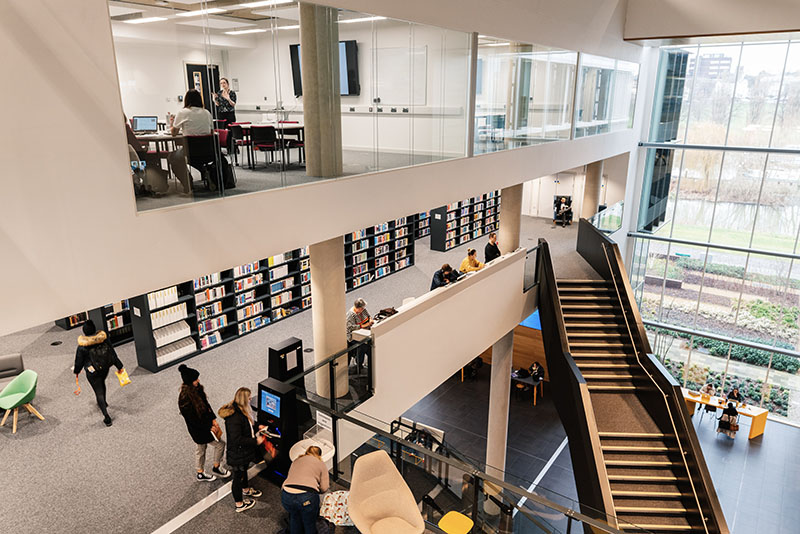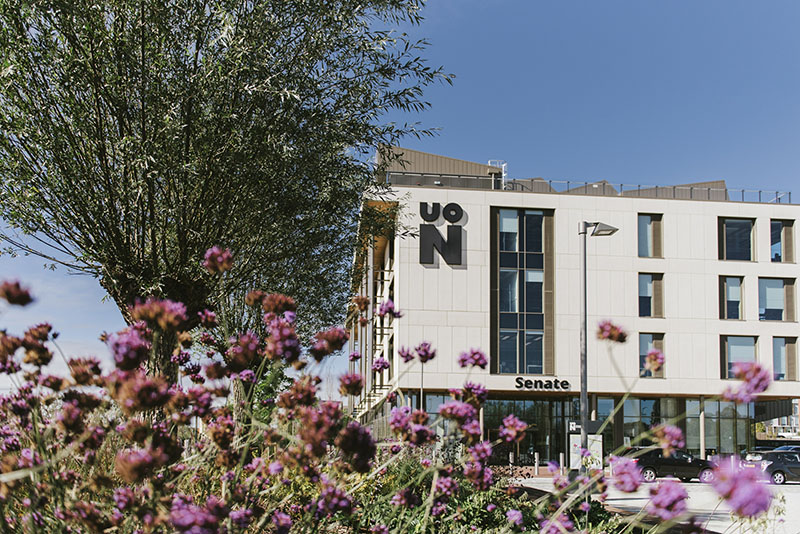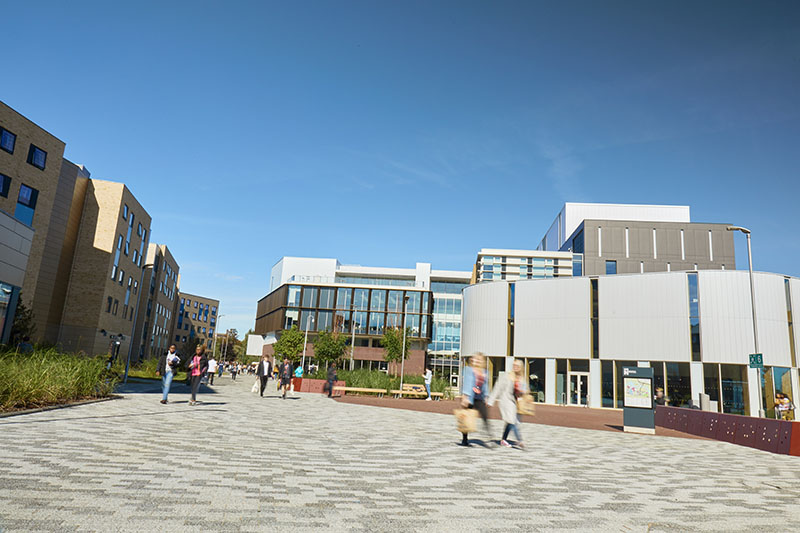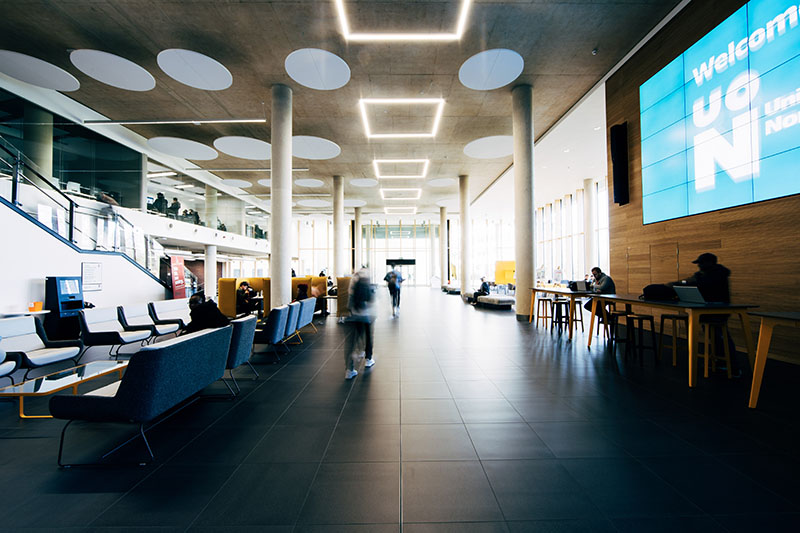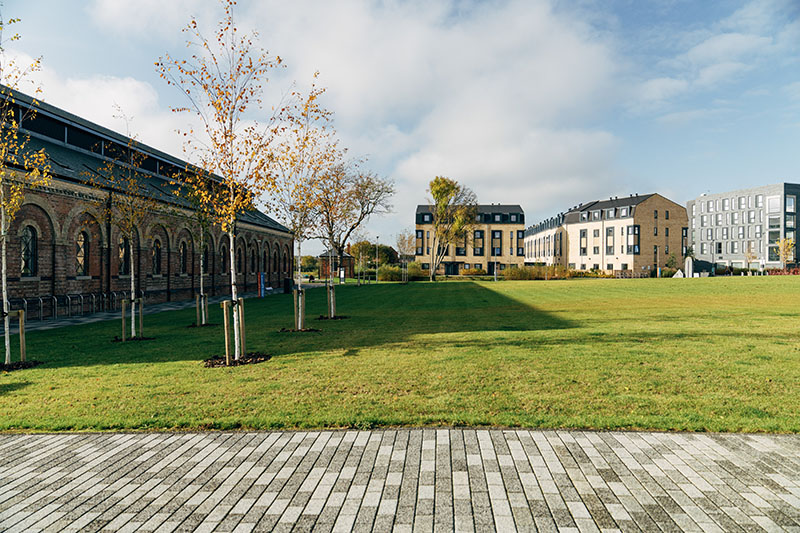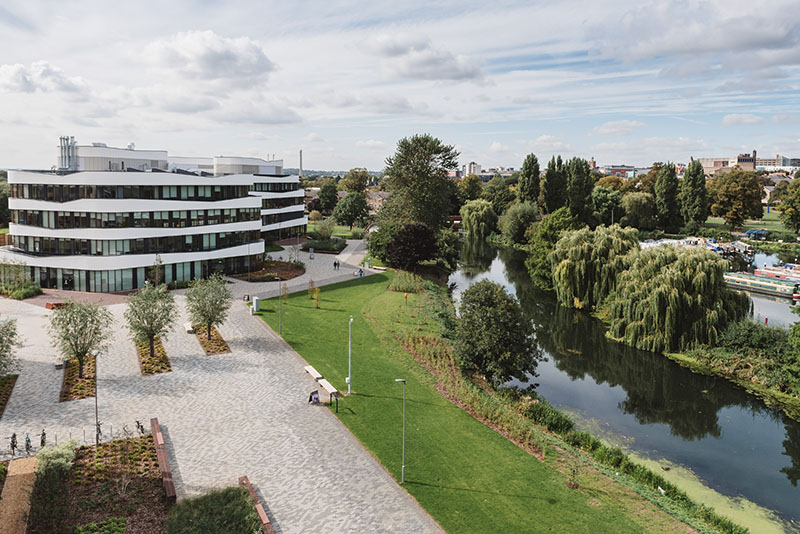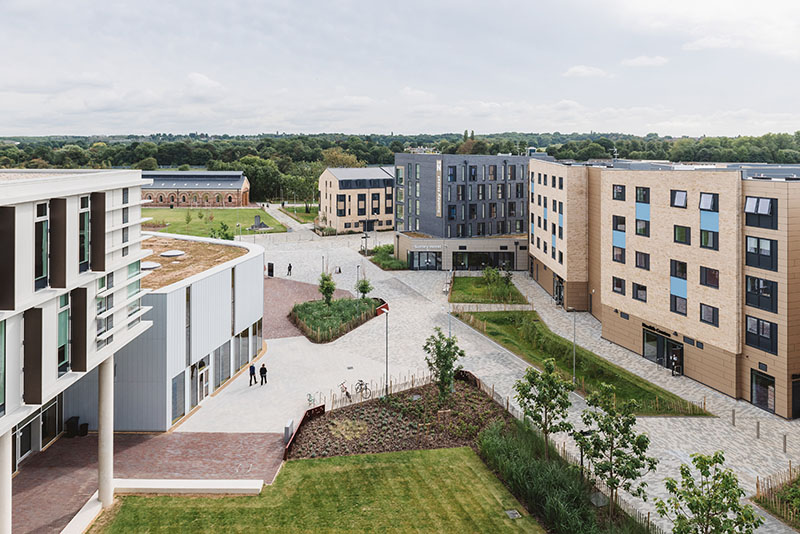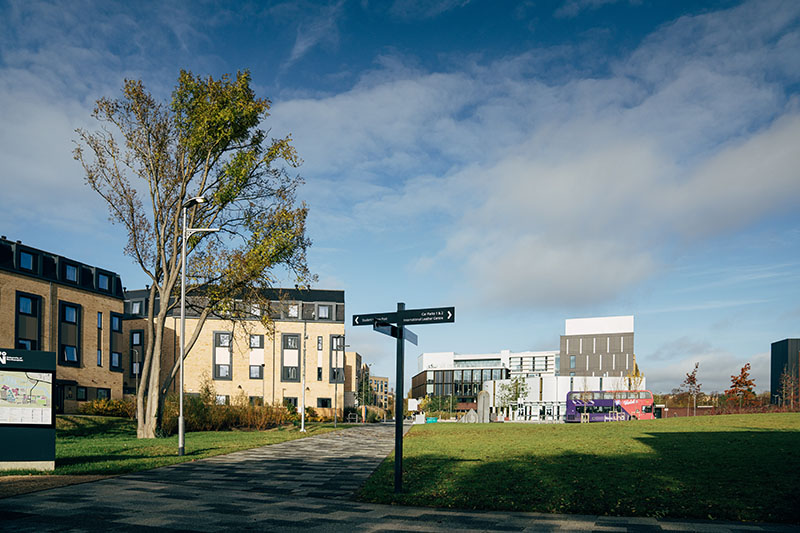
Claire Allen
Senior Lecturer in English & Creative Writing
Faculty of Arts, Science and Technology
DiscoverLevel
Master'sPG
MADuration
Full Time: 1 year
Part Time: 2 - 4 years
Starting
September
Fees UK 24/25
Full Time: £8,250
Part Time: £4,600 Year one (100 credits)
£3,680 Year two (80 Credits)
Fees International 24/25
Full Time: £16,995
Location
For questions regarding study and admissions please contact us:
This exciting English – Contemporary Literature MA course examines the role of contemporary literature in a number of different contexts. You will have the chance to explore a diverse range of texts, across varied modules, with the chance to explore a topic of your choice in specialist detail through your dissertation. You could study post-1945 classics, including late modernists like Samuel Beckett, as well as surveying the latest novels.
On this Contemporary Literature MA, you may explore specialist fields such as trauma fiction or gender and sexuality, master the latest literary theories, or investigate new genres and popular narrative media, including contemporary gothic literature, film, video games and comic books.
Updated 30/05/2024
The English – Contemporary Literature MA programme is built to encourage you to not only examine the contemporary moment – our time, our culture – in isolation, but to use contemporary literature as a window to broader concerns: literary traditions and heritage, politics and society, personal identity and representation.
Full-time English Literature Masters students will take two 30 credit modules in each of two terms, followed by the dissertation. The four modules to be offered in any given year are pre-selected by the tutors from the list below.
Part-time students can take the course over two or three years. In both cases, the first year will contain one module in each of two terms, amounting to 60 credits. If you choose to study over two years, the second year will contain one module in each of two terms, plus the dissertation, amounting to 120 credits.
If you choose to study over three years, the second year will contain one module in each of two terms, amounting to 60 credits, and the third year will involve the dissertation only, to make up the final 60 credits (please note: student loans are not normally available to those studying the three-year option).
All modules will be taught in the evenings (6-9pm) allowing you to take your English Literature masters degree entirely outside of normal working hours.
The dissertation, provides greater opportunity for choice of topics and allows you the chance to master a specific area reflecting your own interests and chosen approaches.
Please note the modules shown here relate to the academic year 24/25. The modules relating to the academic year 25/26 will be available from June 2025.
To apply for the MA in English (Contemporary Literature), we normally ask that you have a Bachelor’s degree in English, or a related discipline, at 2:1 or higher. Applications with alternative qualifications or experience and from overseas students are welcomed and will be assessed in accordance with the University’s Admissions Policy and Academic Regulations.
For more more information on how to make an application, please visit our How to Apply page.
If you are an International student and would like information on making an application, please see our How to Apply page.
All International and EU students applying for a course with us must meet the following minimum English language requirements:
For information regarding English language requirements at the University, please see our IELTS page.
Fees quoted relate to study in the Academic Year 24/25 only and may be subject to inflationary increases in future years.
We do ask that you buy the prescribed primary texts for each module. We carefully review the costs of every module each year, so that they do not exceed £100 per module. In practice, by using libraries, freely available online resources and second-hand copies of books, costs are often less than half of this total figure.
You will have the chance to attend a range of research seminars, conferences, field trips and other activities beyond the curriculum for free or at minimal cost.
Fees quoted relate to study in the Academic Year 23/24 only and may be subject to inflationary increases in future years.
We do ask that you buy the prescribed primary texts for each module. We carefully review the costs of every module each year, so that they do not exceed £100 per module. In practice, by using libraries, freely available online resources and second-hand copies of books, costs are often less than half of this total figure.
You will have the chance to attend a range of research seminars, conferences, field trips and other activities beyond the curriculum for free or at minimal cost.
Master’s Loans
If you are starting a master’s course in 2024/25 either full-time or part-time*, you may be able to apply for a master’s loan through Student Finance England.
For information on the scholarships available to you, please see our scholarships page.
For more information about possible funding options, please visit our Fees and Funding pages.
Modules are taught face to face in small groups, with occasional preparatory work and consolidation activities that are completed online, with tutor guidance.
Assessment varies from module to module, but there are currently no exams for this course. Previous modules have used annotated bibliographies, essays, online discussion forums, critical explications and presentations as forms of assessment. Your final assessment consists of a 15,000 word dissertation.
You will benefit from
Open Days give you the best experience and insight to courses, people and facilities that interest you. Make your choice easier and come meet us.
Senior Lecturer in English & Creative Writing
Faculty of Arts, Science and Technology
DiscoverReader in English Studies
English – Contemporary Literature MA
DiscoverSenior Lecturer in English & Creative Writing
Faculty of Arts, Science and Technology
DiscoverSenior Lecturer in English & Creative Writing
Faculty of Arts, Science and Technology
DiscoverProfessor of Media and Culture
Faculty of Arts, Science and Technology
DiscoverSenior Lecturer in English & Screen Studies
English – Contemporary Literature MA
DiscoverAssociate Professor in Film & Screen Studies
Faculty of Arts, Science and Technology
DiscoverSenior Lecturer in English & Creative Writing
English – Contemporary Literature MA
DiscoverEnglish Masters students who have studied with us have gone on to a variety of careers, including:
"The end of my university adventure feels like a dream I’ve woken up from and wish I could return to." Abbie Shannon
